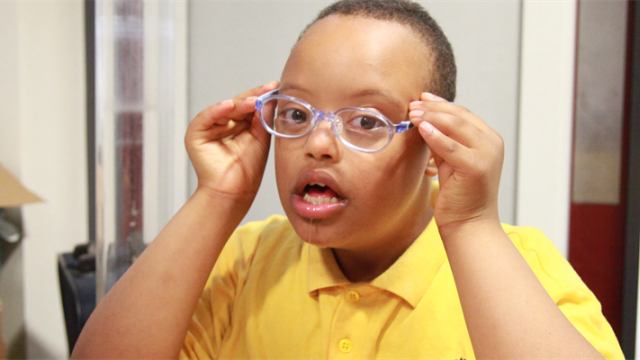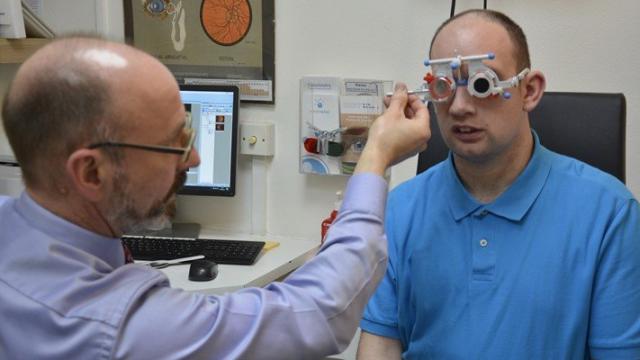Diabetic eye screening (easy read)
Having your eyes checked is the only way to find out if diabetes is making your eyesight worse. This special eye test is called NHS diabetic eye screening.
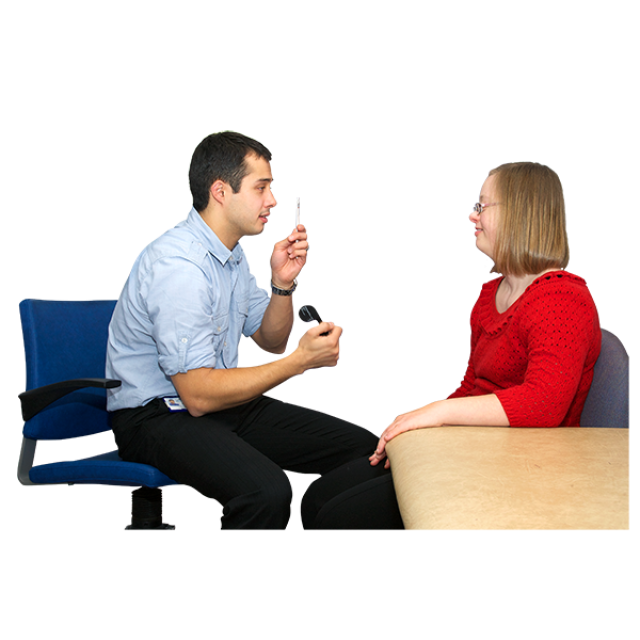
Having your eyes checked is the only way to find out if diabetes is making your eyesight worse.
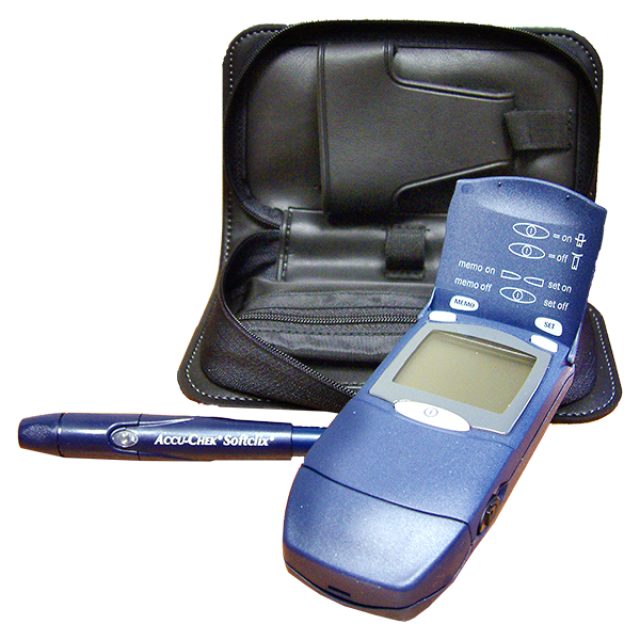
This special eye test is called NHS Diabetic Eye Screening.
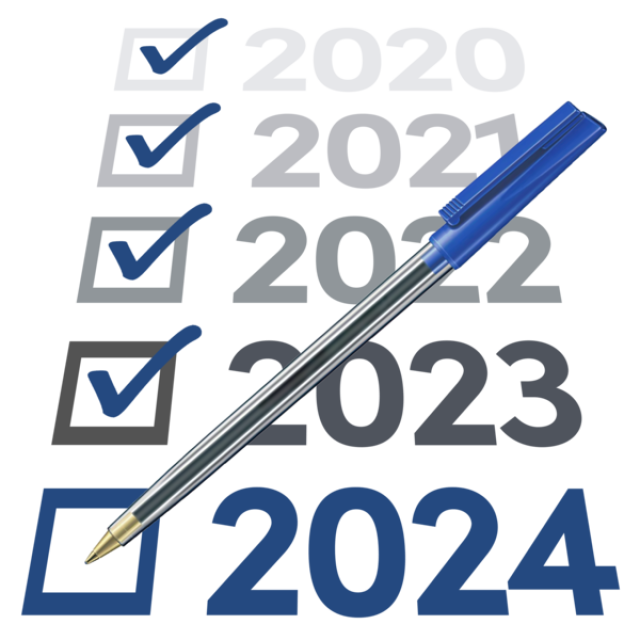
It is important your eyes are checked every one or two years to look for problems caused by diabetes.
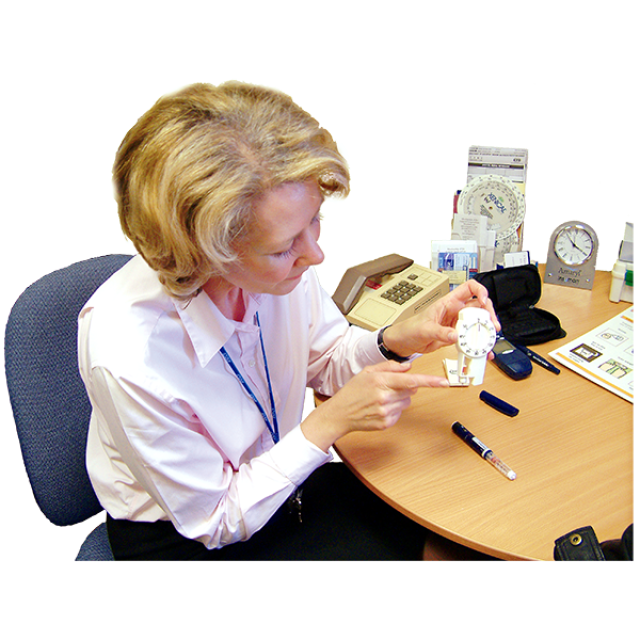
The NHS Diabetic Eye Screening is a special test for diabetes.
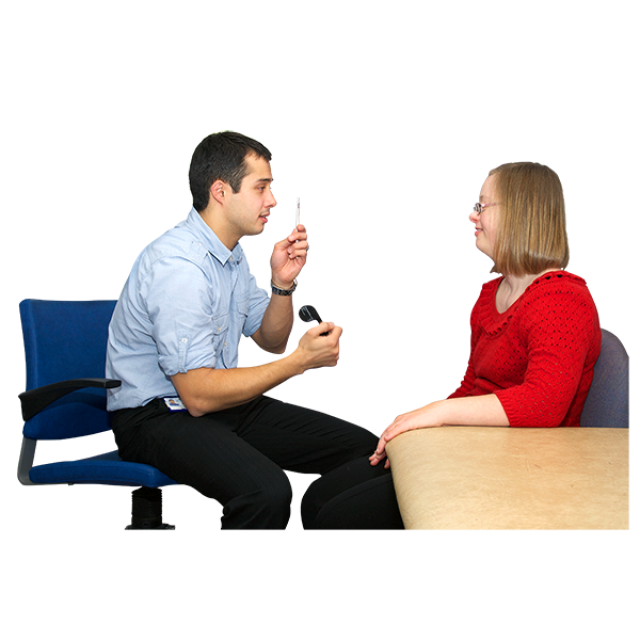
You will still need to see the optician for a normal eye test every year.

You will be sent a letter telling you when and where your diabetic eye screening appointment is.
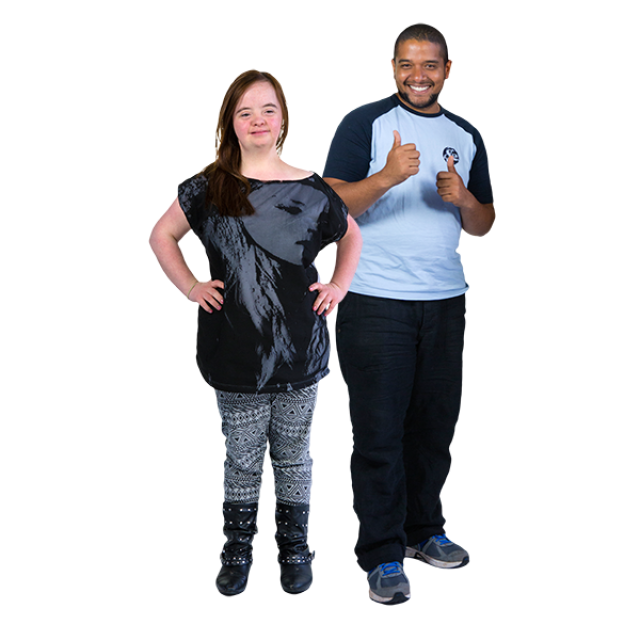
You should go to the appointment with someone you know.
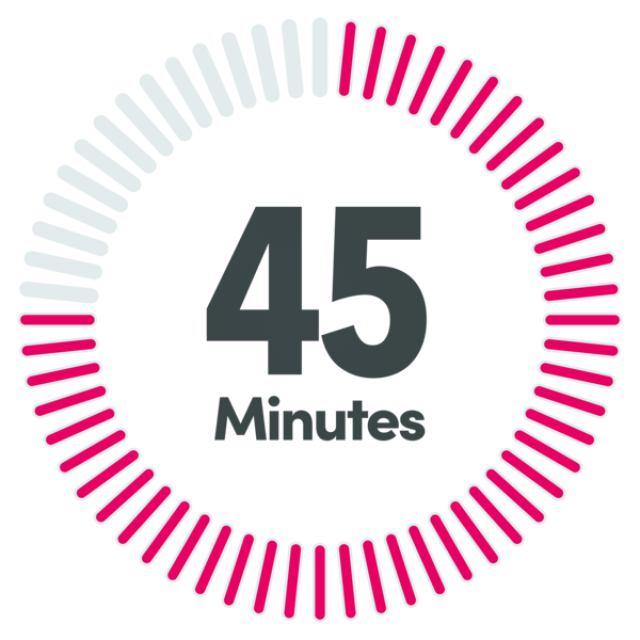
The appointment usually takes around 45 minutes.
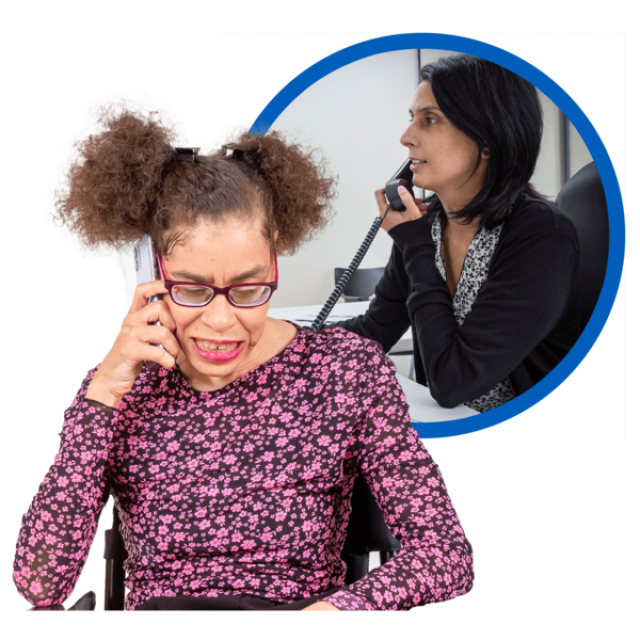
It is good to speak to the place where your eye test is happening before you go.
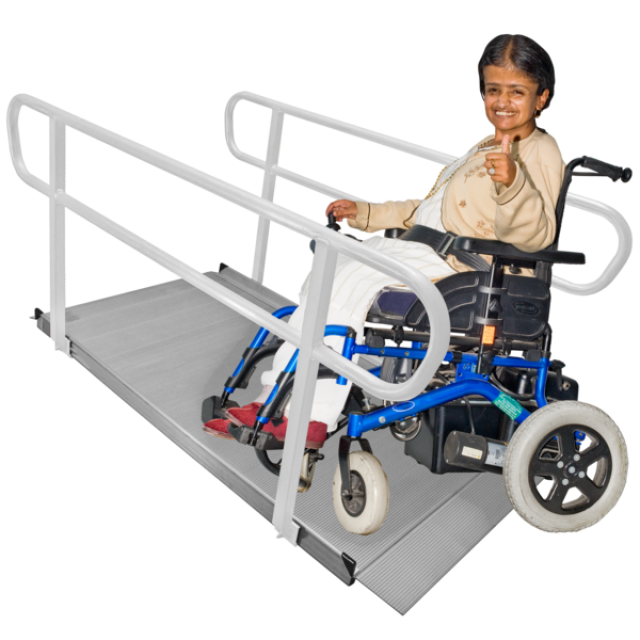
You might need to ask if they have wheelchair access.

You should tell them about any other needs you have.
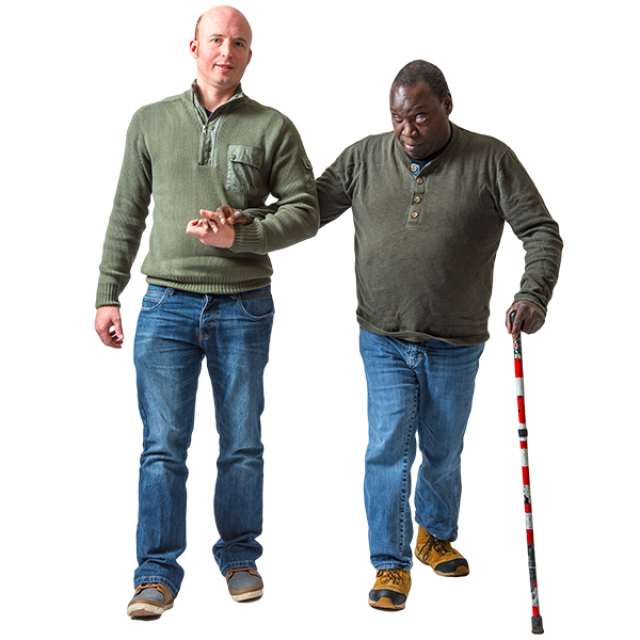
These needs might include hearing or eyesight issues.
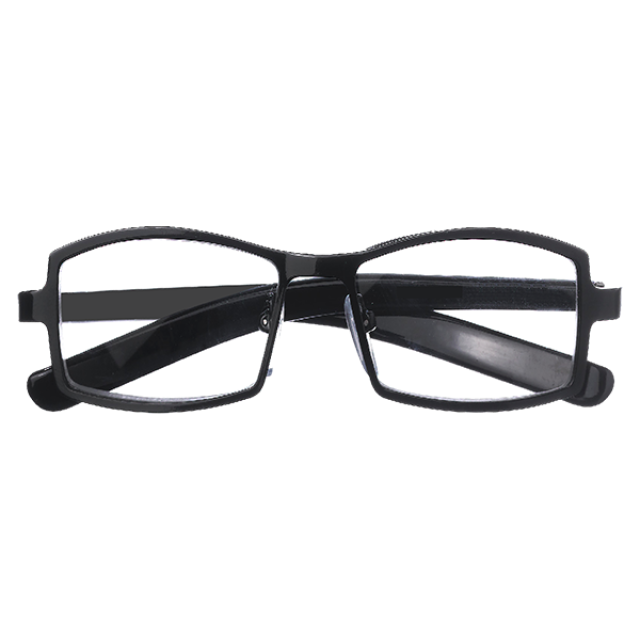
Remember to take your glasses with you.

Remember to take any information you have about your health with you.
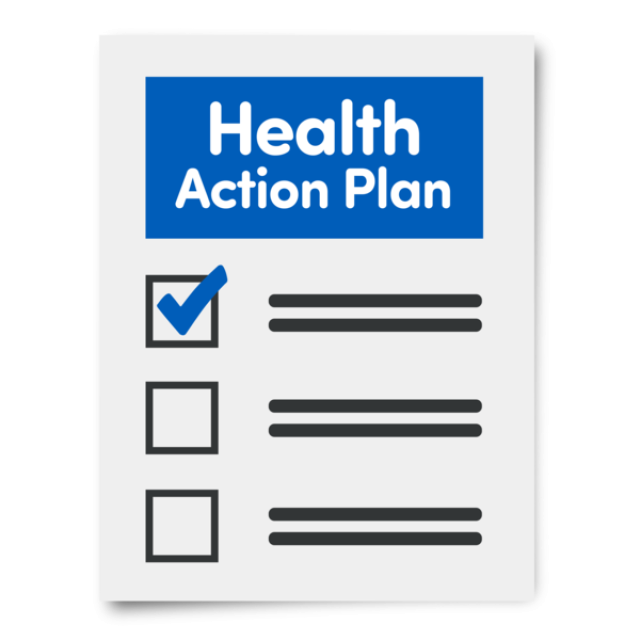
If you have a Health Action Plan take this with you.
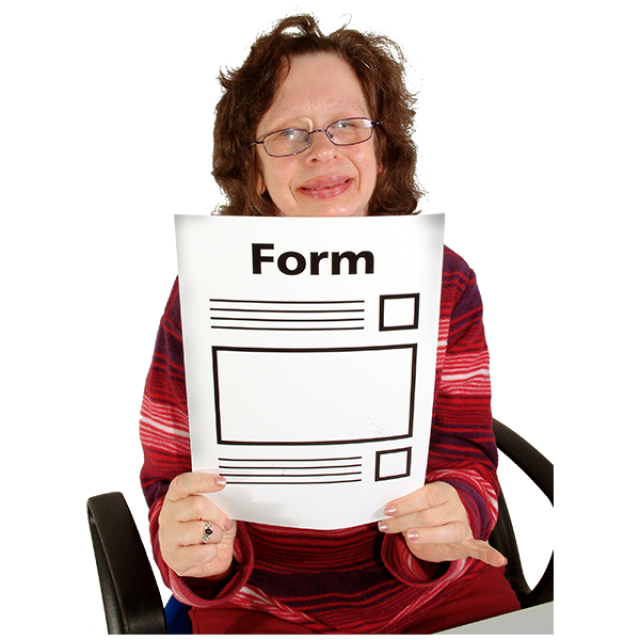
We have a form about you and your eyes that you can take with you.
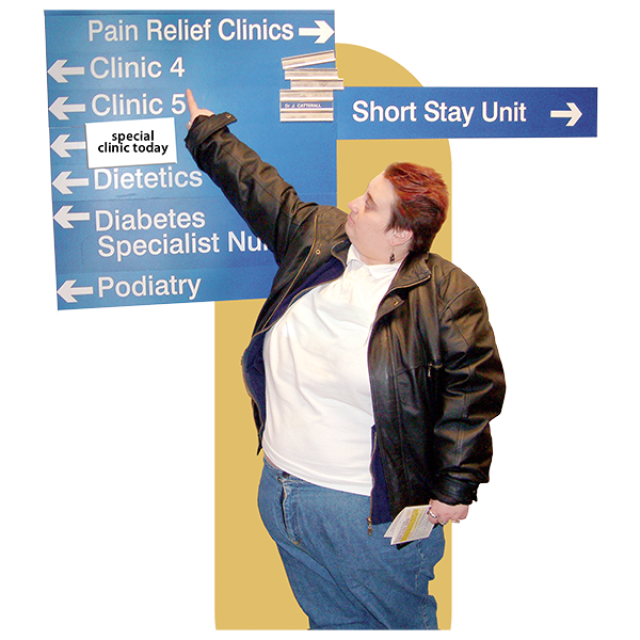
It’s a good idea to visit the eye clinic before your treatment.

You can talk to a nurse about what the eye doctor needs to do.
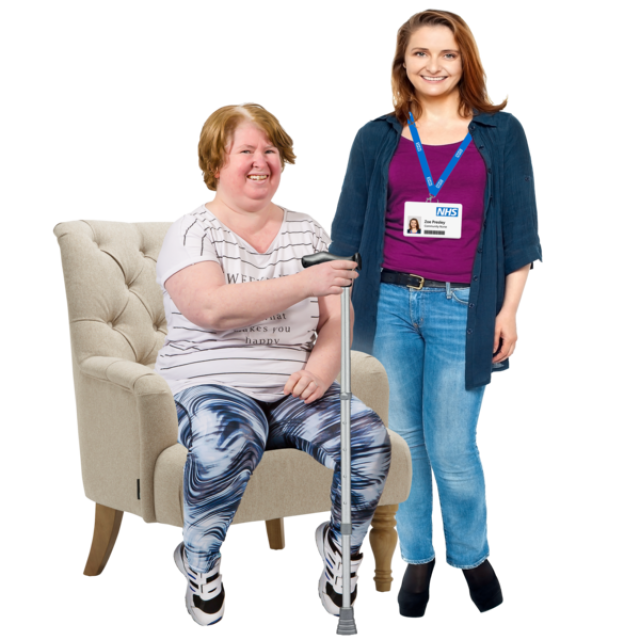
Some hospitals have Learning Disability Nurses to help you get the right care.
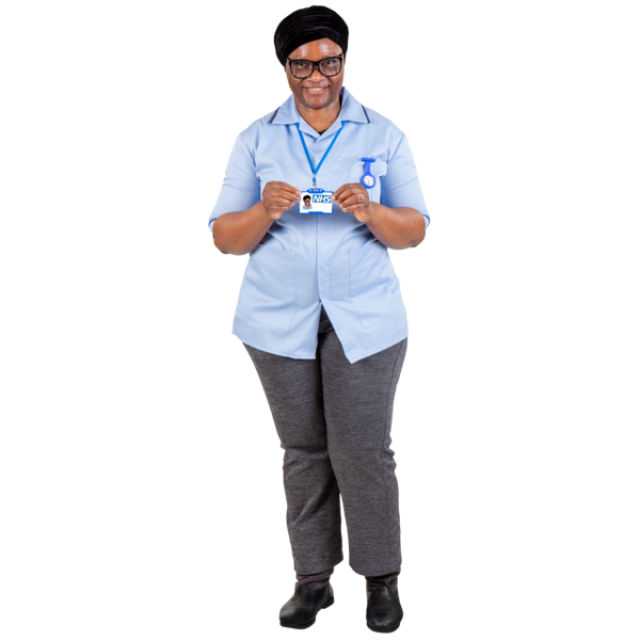
Some hospitals also have people to talk to called Eye Clinic Liaison Officers (ECLO).

The eye screening team will talk to you about your eyesight and diabetes.
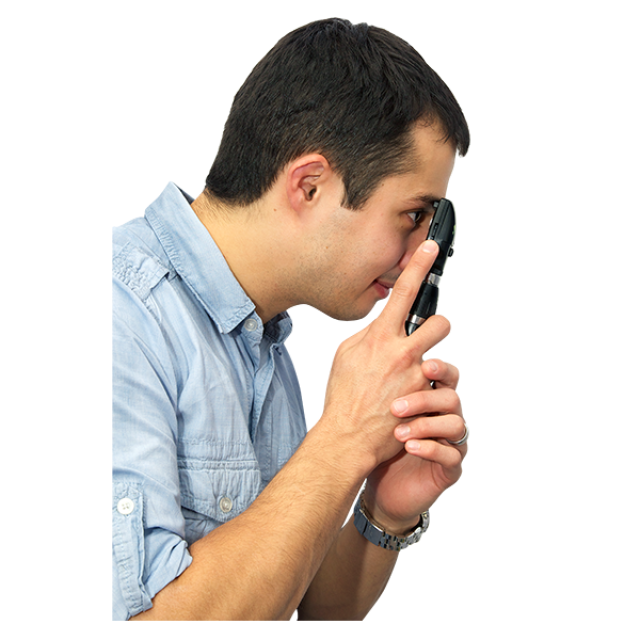
The eye screening team will look at your eyes.
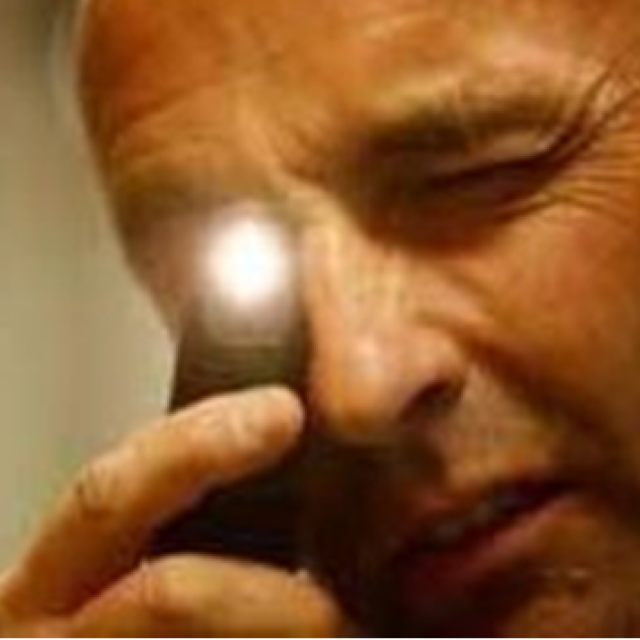
The person who checks your eyes may get close to you to use a bright light to look into your eyes.
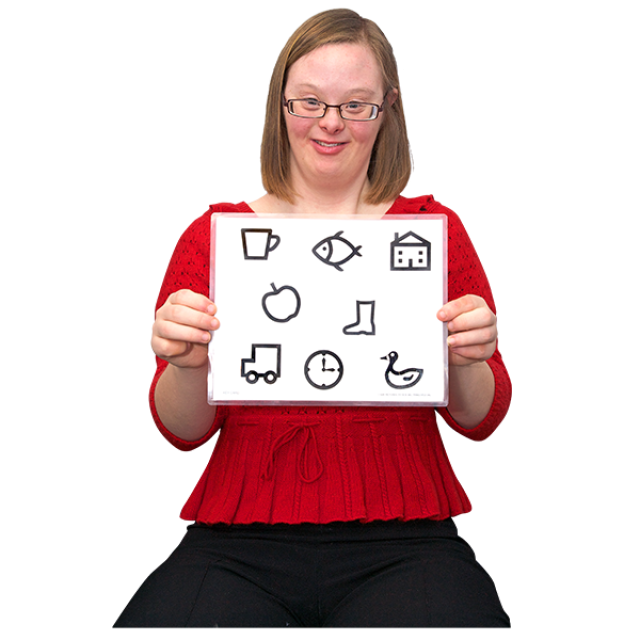
They will ask you to look at some charts.
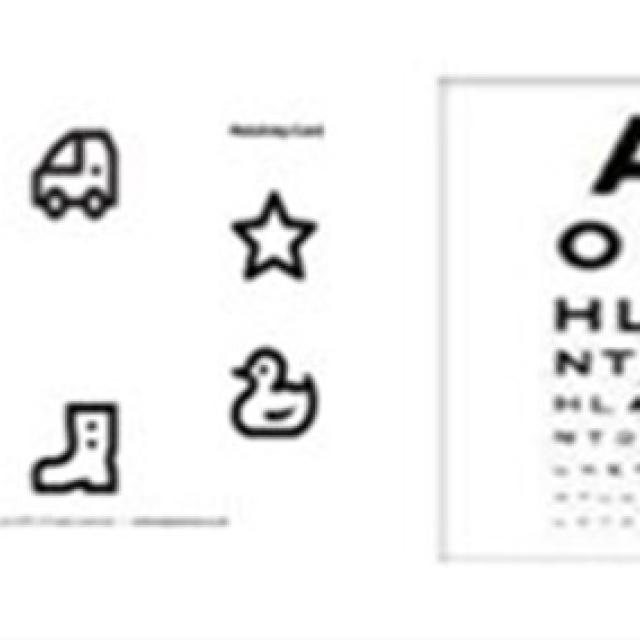
There are letter charts and picture charts.
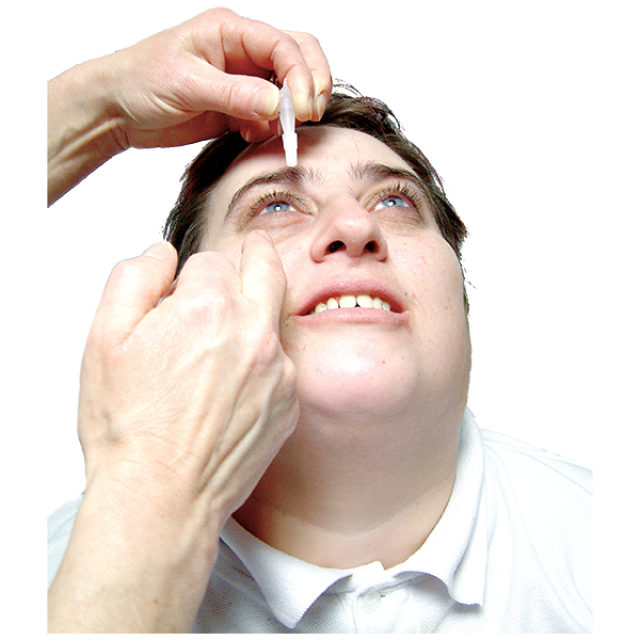
You will need to have eye drops.
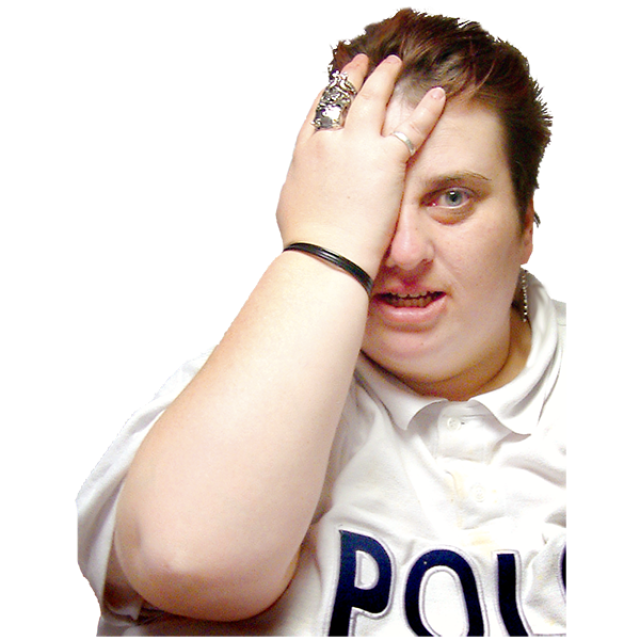
The drops might make your eyes sting.
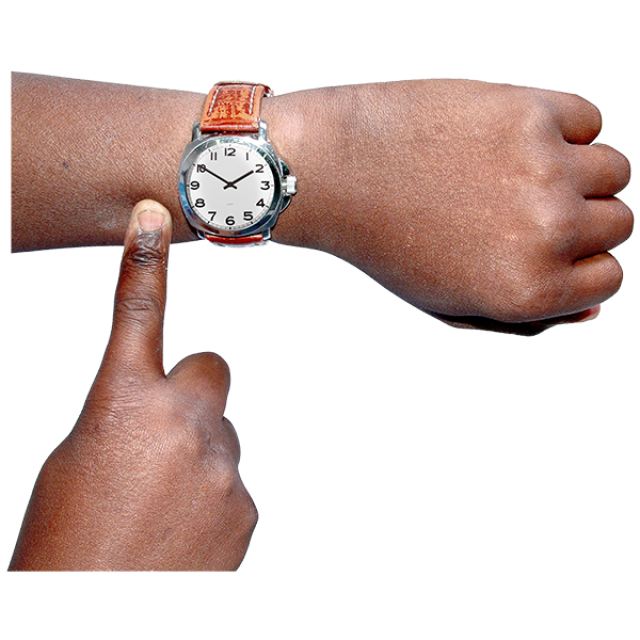
The stinging will not last long.
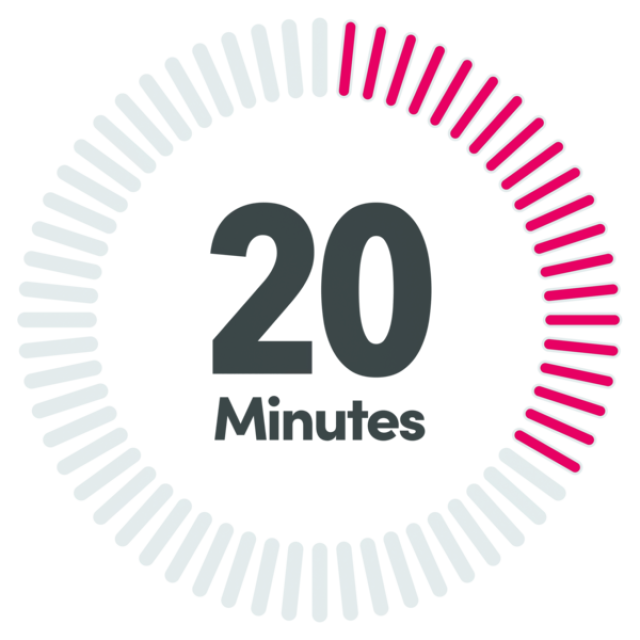
You will have to wait 20 minutes for the eye drops to work.
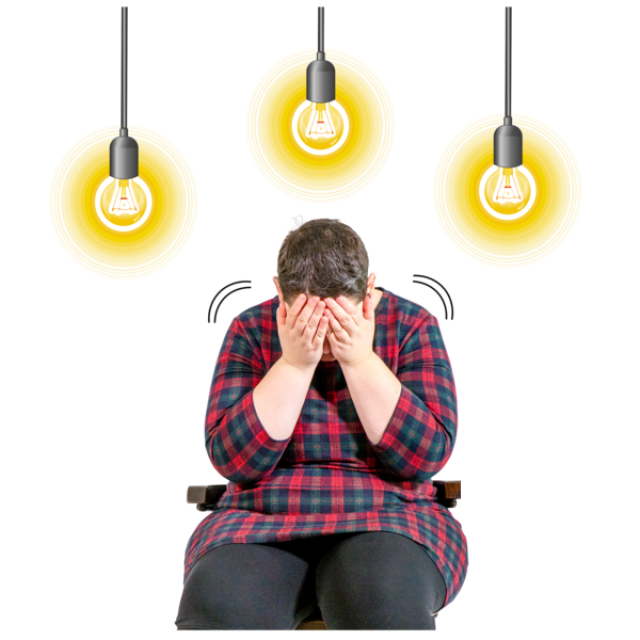
The eye drops might make things look very bright.

It’s a good idea to take sunglasses to wear.
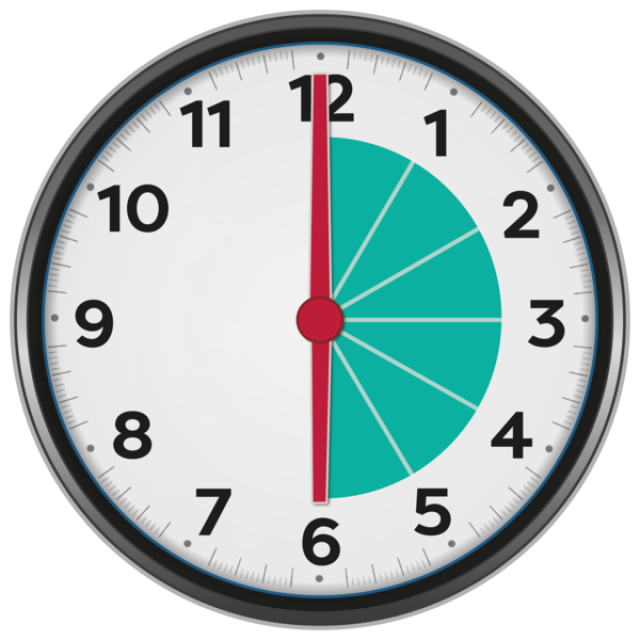
The drops may take up to 6 hours to wear off.
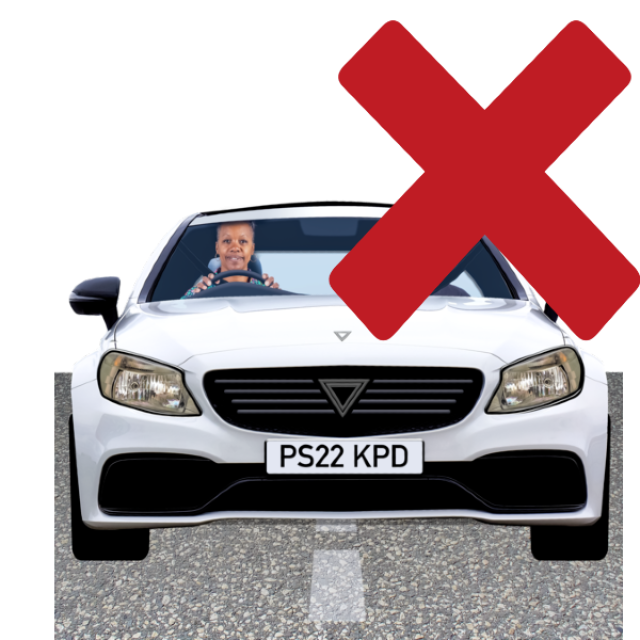
You cannot drive until the eye drops have worn off.
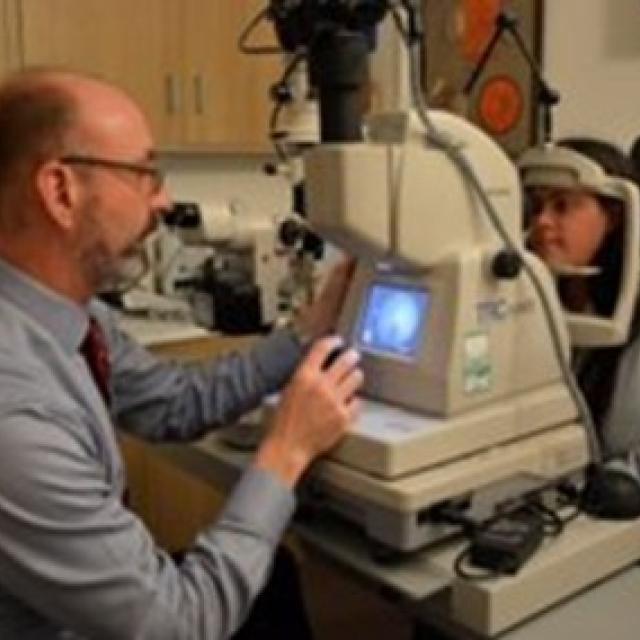
A machine will take a photo of the back of your eyes.

The photo doesn’t hurt.
The camera won’t touch your eye.
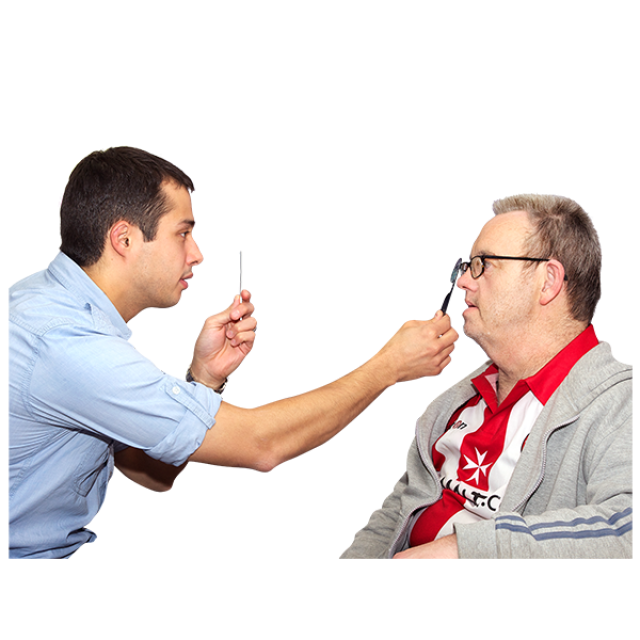
You will need to keep your head still.

Someone may need to help you to keep your head still.
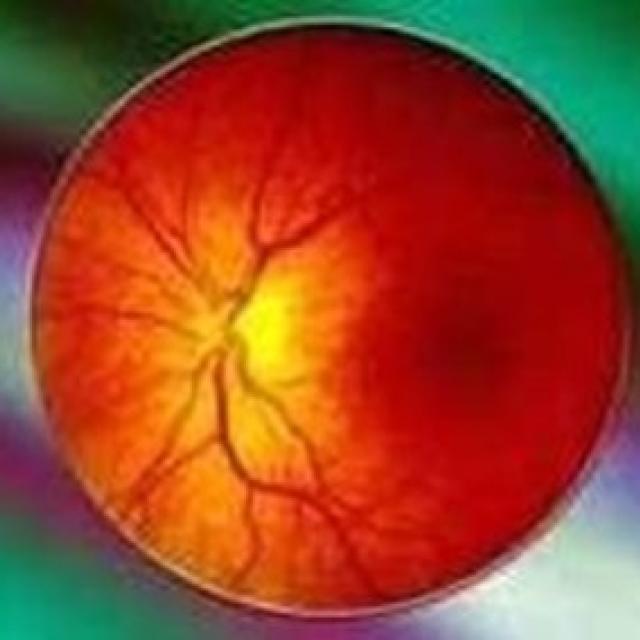
You will be able to see the picture of the back of your eye on a computer screen.
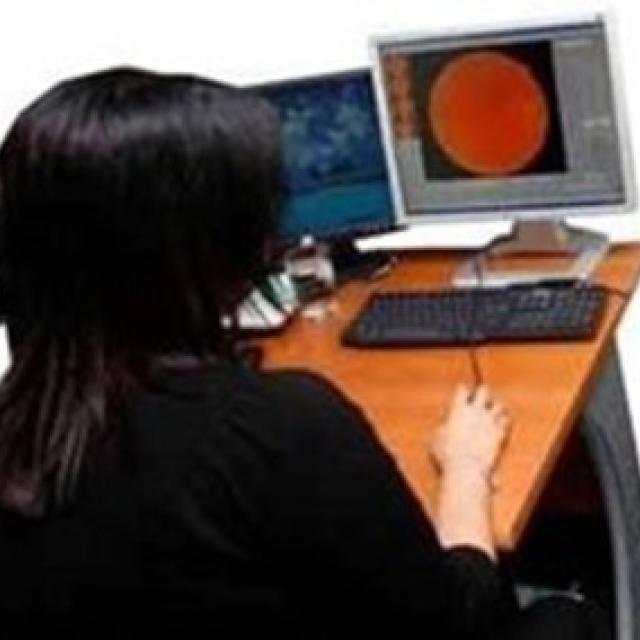
The eye screening team will look at the photos of your eyes.
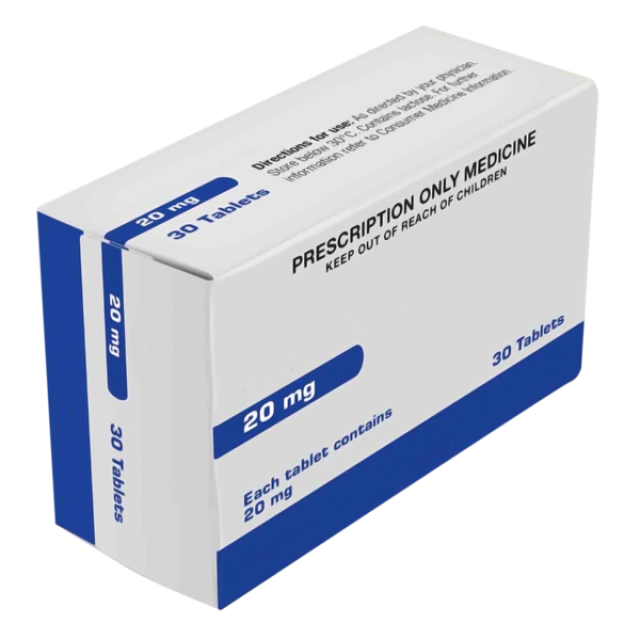
They will decide if you need any treatment.
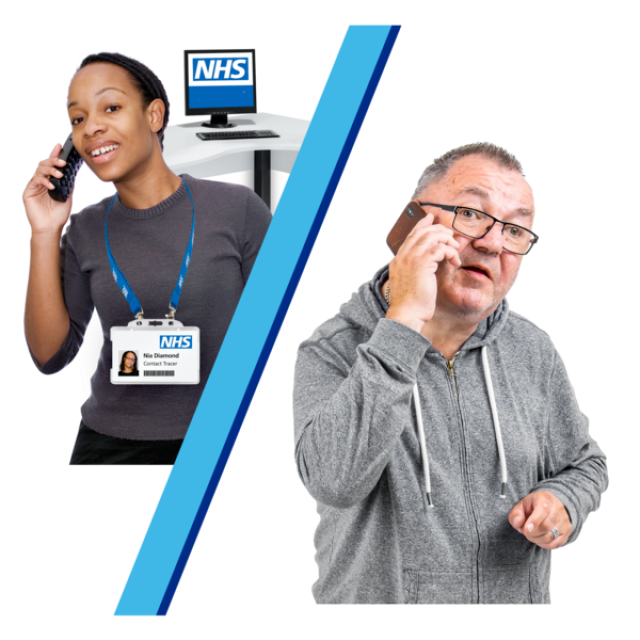
The eye screening team will contact you and your doctor (GP) after your appointment.
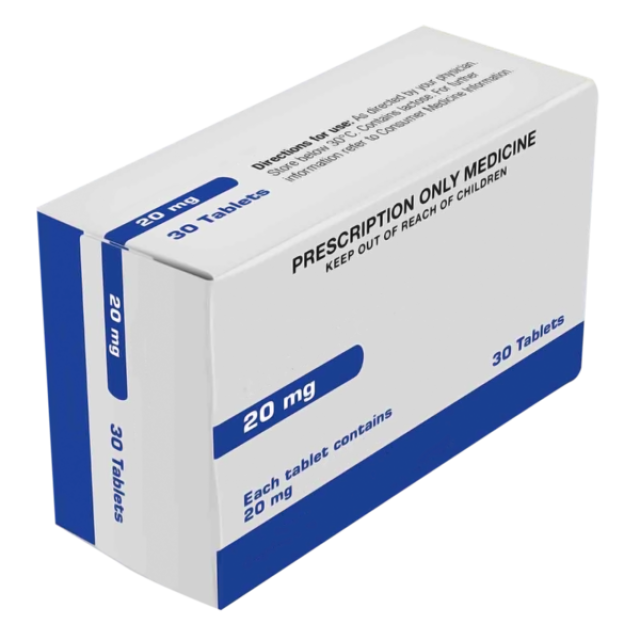
They will tell you and your doctor (GP) if you need any treatment.
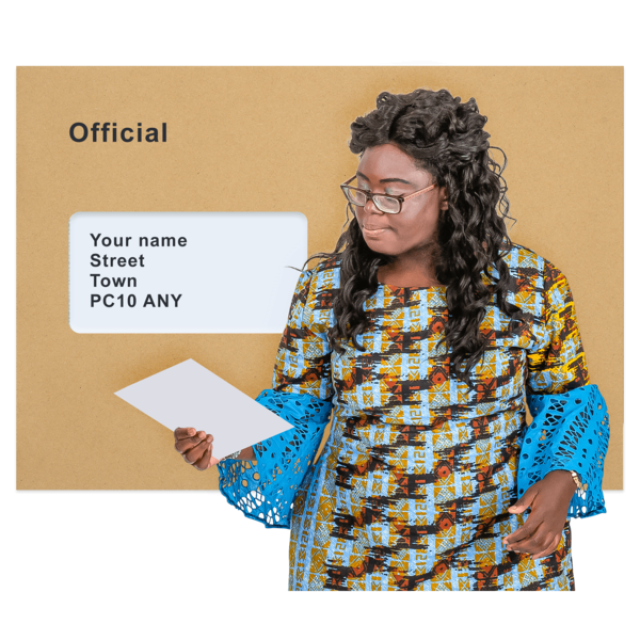
If you need any treatment for your eyes:
- You will be sent an appointment to see the eye doctor.
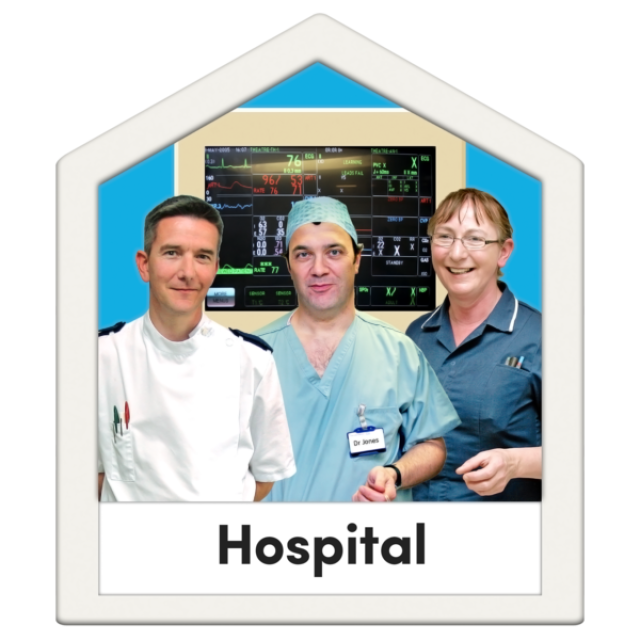
Your treatment will be done at your hospital eye clinic.
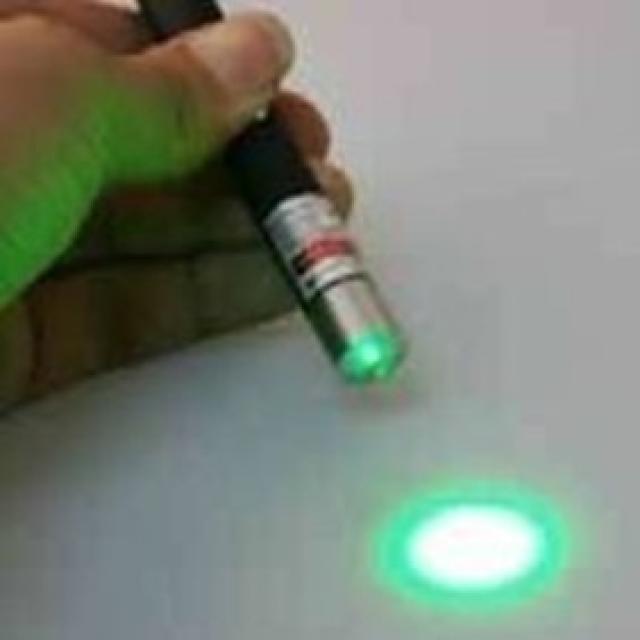
Treatments might include:
Using very bright lights called lasers to mend the back of your eyes.
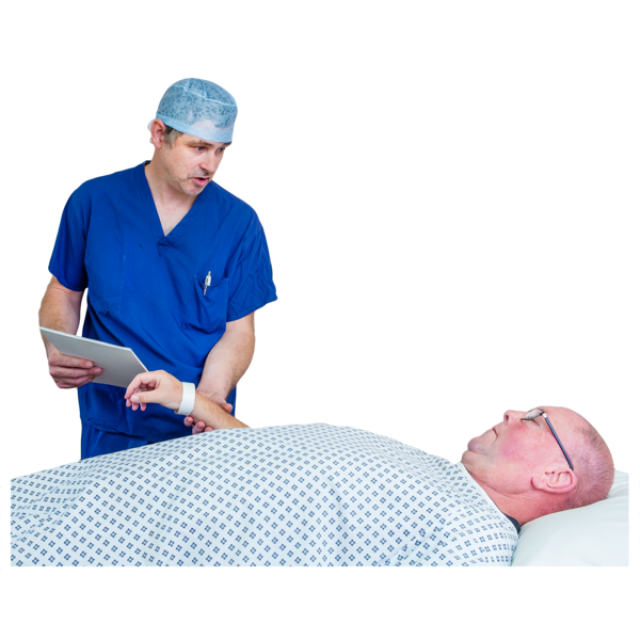
An operation on the inside of your eye.

Keep the information from your diabetic eye screening appointment safe.

Share the information with people who support you.

If you think you are pregnant you will need to tell the eye doctor.
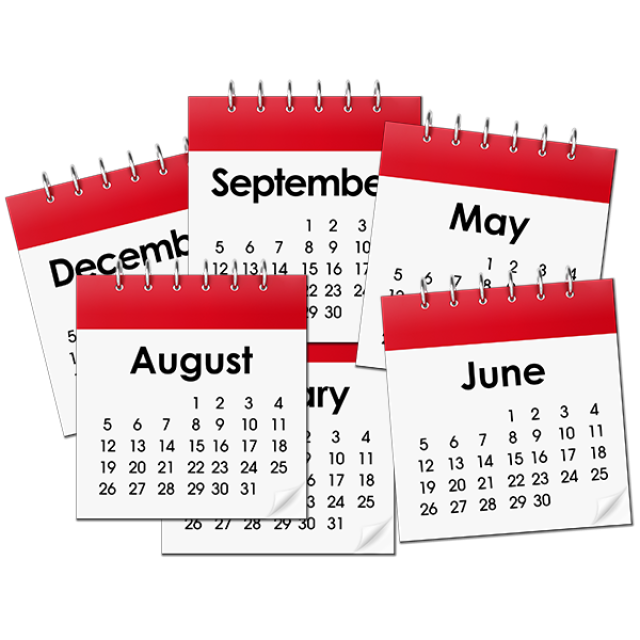
If you are pregnant you will need to have diabetic eye tests more often for around one year.


